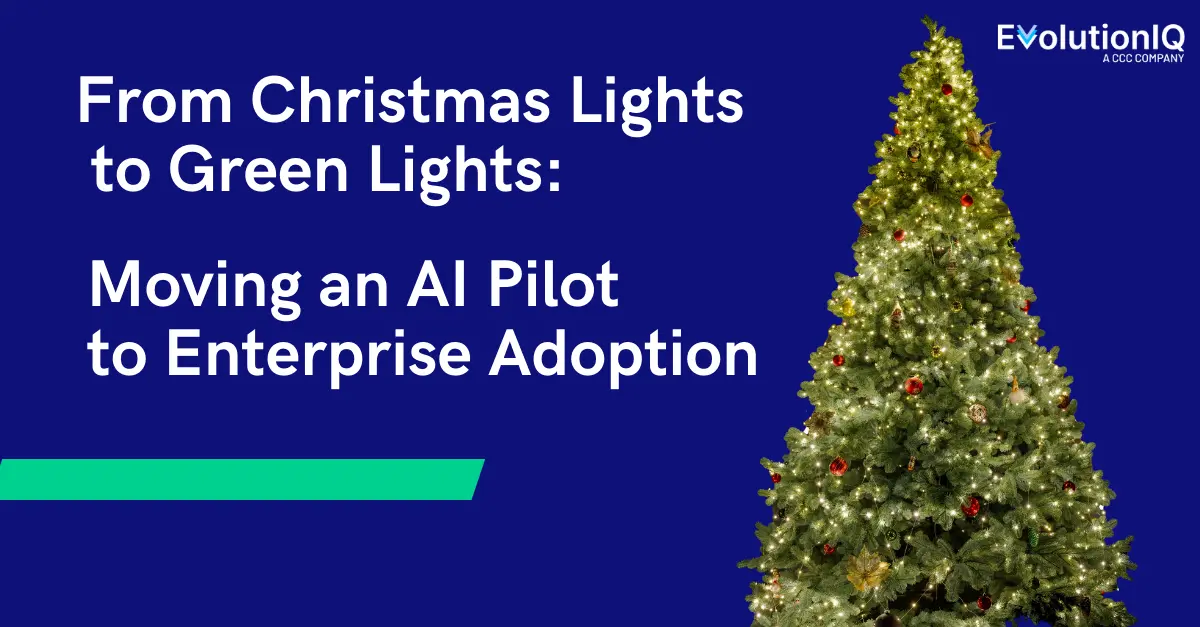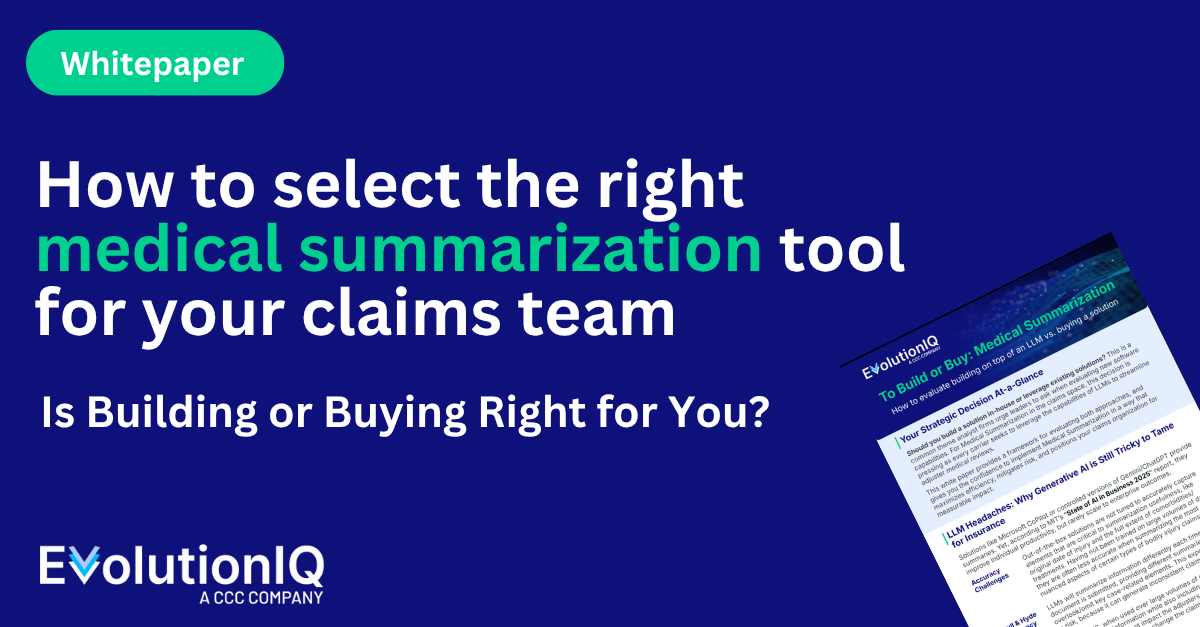Partnering People with AI to Transform Claims Handling: Part 2
In Part 1 of our recap of the recent virtual panel, Partnering People with AI to Transform Claims Handling, we heard from leaders of Principal Financial Group a …


In Part 1 of our recap of the recent virtual panel, Partnering People with AI to Transform Claims Handling, we heard from leaders of Principal Financial Group and Sun Life Financial about the experience of deploying AI-powered claims guidance for the first time.
In today‘s Part 2, we‘ll look at how the technology does far more than just help an examiner or adjuster in their day-to-day work instead generating a snowball effect of positive impact throughout a carrier or TPA.
When asked what the biggest impact of the technology has been, Jason Hollis, Claims Director at Principal Financial Group, said that the broader impact on the team is almost as important as the immediate impact on claims management.
I think the biggest impact doing claims more efficiently, obviously, financial impacts, and things like that but actually it had nothing to do with that, says Holis. It was much more about what more it could facilitate within our department. The other changes we can make as a result. Can we reconfigure the workflow? Can we re-do how we‘re looking at things? Will it give us insights into which claims we’re overworking? Does it give more reliability to the claims we‘re looking to settle? Because we know if it‘s looking a certain way we know that there is nothing we‘ve missed.
He continued: All of the other downstream uses for it and what impact it has that allows us to do things we otherwise wouldn‘t be able to do because it takes too much time to get there or because we do not have the resources to transform. That is what has really resonated the most with this process. What it‘s allowed us to do in terms of the bigger picture. This isn‘t something you just layer on top of something you‘re already doing. This isn’t just a tack-on thing that you do. It is something that you integrate into what you are doing. It is something that looks at the bigger picture and what next, but also how do we utilize this in other ways that will benefit us as well.? So when you dream about what the future-state is, you actually have a clear vision of things that are actually realistic instead of just being massively conceptual.
Importantly, he said, AI isn‘t just a tool to compartmentalize in a new tech bucket. What this experience has shown me along the way in various integration points of AI is that it is not just an AI bucket. It is something that impacts your operations as a whole. It has a much wider reach than just an isolated use or its intended use. I think it is really a driver for a number of other things that can take place on a wider scale.
He continued: The department as a whole is excited. It is because they know it has the ability to eliminate some of the repetitive, redundant work that isn‘t providing a benefit. I think the people using the tool are excited because it gives them the freedom to do what they believe is right on an individual claim and not have to follow a certain path because you gain insights into why is this deemed to be an outlier. How do you go about revalidating a claim or identifying a claim that we need additional information on? They can then use their analytic skill to determine what the direction of the claim is. So I would say that, not only the people that are directly involved in it, but across the board, just knowing the impact it has on the workflow as a whole has a number of people excited about it.
Shawn Smith, AVP National Accounts, Sun Life Financial, adds: Intuitively, people [in the C-suite] know that this is where we are going. I think everybody knows that using the data in this way is where we are headed. And that is helping the whole organization embrace it, not just examiners and adjusters, he said. It is not, is this a good idea or not. I haven‘t had anybody come to me and say this is witchcraft. You are not going to do this. This is craziness. That is not the argument. The argument is who, when, and how much.
It‘s not just an AI bucket. It‘s something that impacts your operations as a whole. It has a much wider reach than just an isolated use or its intended use. I think it‘s really a driver for a number of other things that can take place on a wider scale.
Smith adds that the entire organization can feel the forward momentum. For example, In short term disability we were rooted in some pretty steadfast rules. Rules that people followed and when you ask them why, they don‘t really have a great explanation. This is the way we‘ve always done it. That‘s what the rules say. Looking at these rules again and using data to predict outcomes and next phases rather than some historical document is really, really important if you want to move the organization forward.
At the end of the day, Smith says, What we‘re really trying to do is really understand where we can use this technology to be faster but also to create a better client experience through the whole process. There is no getting around the fact that after all of these years, the biggest predictor of a client’s experience or claims experience is who their claim gets assigned to. Through all of our training and everything we do, who your claim gets assigned to is going to be the biggest predictor of your experience. And using this data helps put claims in the right hands.
And it‘s making examiners more effective and happy in their jobs as they are able to use their expertise to help people, not spend it on processes or unnecessary tasks. They tell Smith, This isn‘t doing my job for me. It‘s helping me do my job. It‘s bringing all that together.
Partnering People with AI to Transform Claims Handling from Sibel Clifford on Vimeo.












